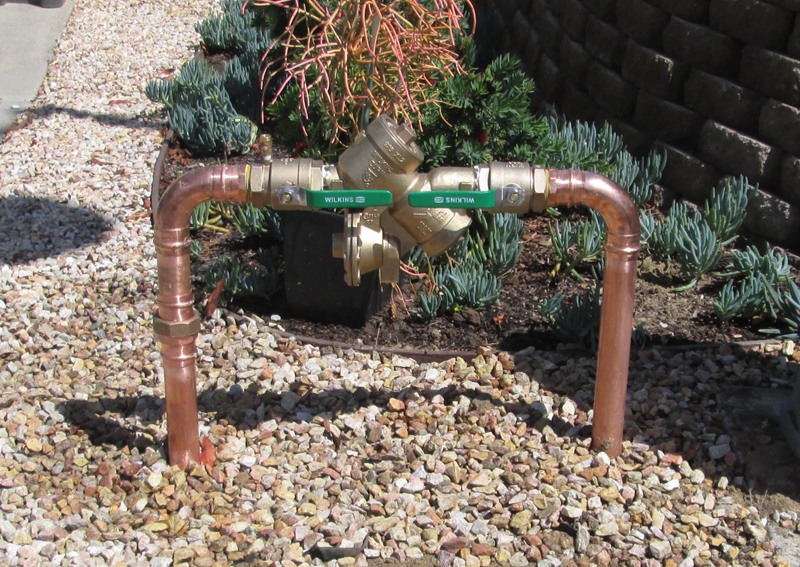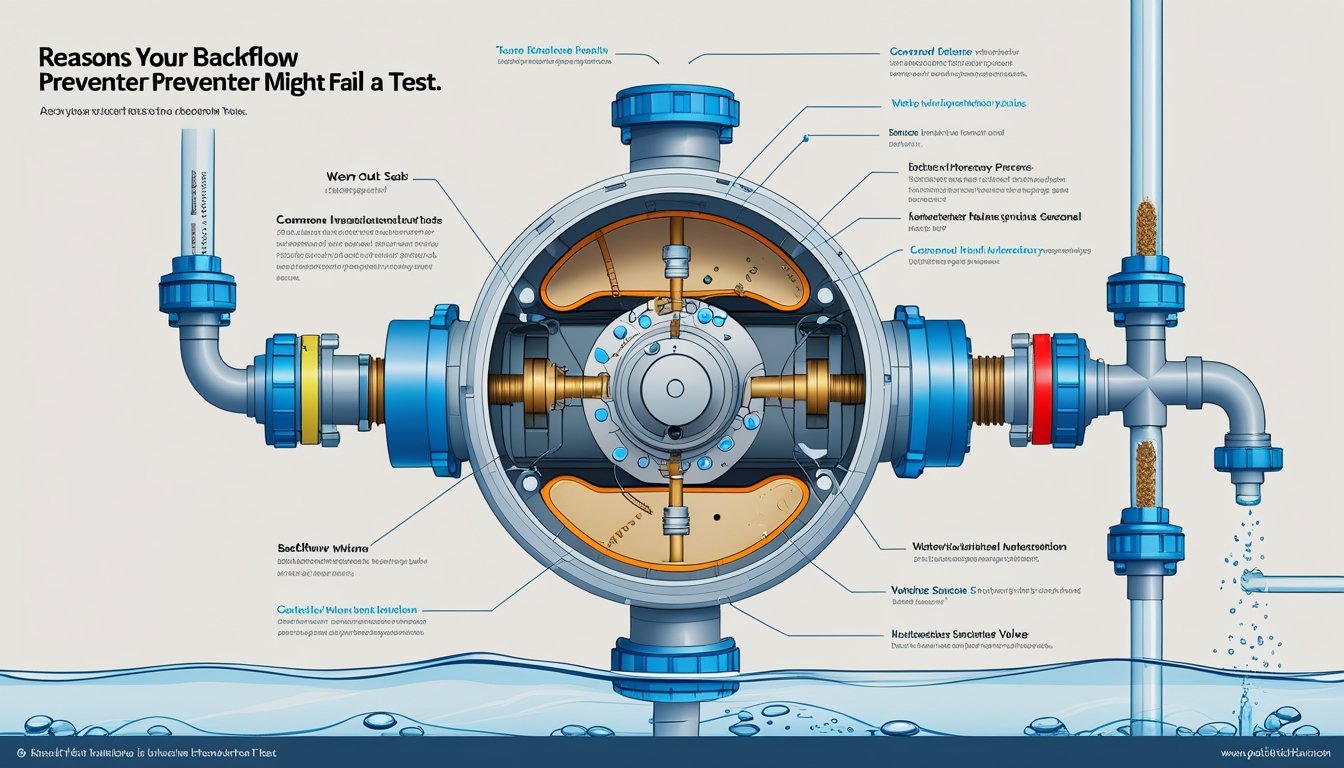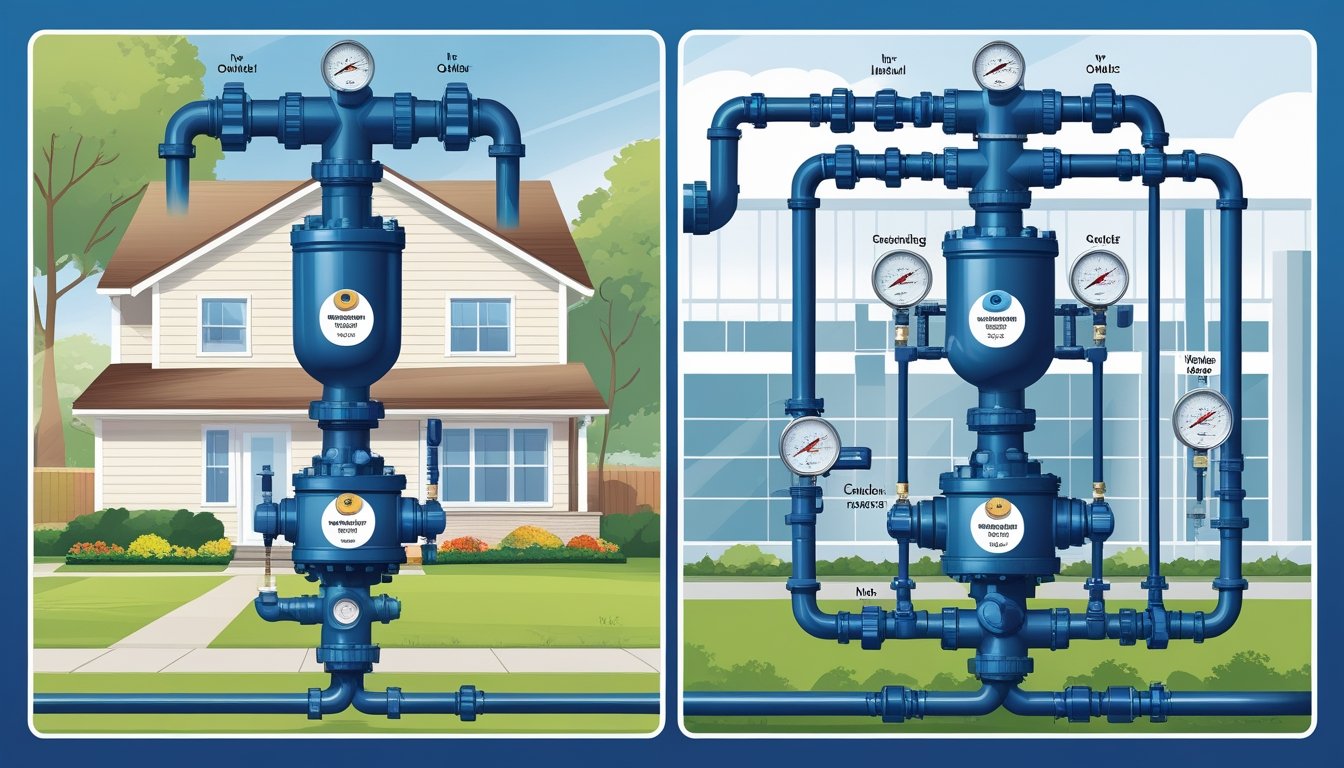When considering a Brita filter for your water needs, it’s essential to understand what it can and cannot do. Brita filters are not designed to remove bacteria from your water supply. While they effectively reduce chlorine taste and odor, sediment, and some heavy metals, they do not filter out harmful microorganisms, such as E. coli or Giardia.
You may rely on these filters for better-tasting water, but if you're specifically concerned about bacteria, you need to explore additional options. Many households in San Diego County prioritize water safety. At Pacific Backflow, we ensure that your water is protected through comprehensive backflow testing and installations, which safeguard against contamination.
Properly managing your water system is crucial for health and safety. Even with filtration, it’s vital to stay informed about what your water treatment methods can handle, especially if you're relying on a Brita filter. Understanding these limitations helps you choose the best solutions for safe drinking water.
How Brita Filters Work
Brita filters are designed to improve the quality of tap water by targeting specific contaminants. They utilize unique technologies to enhance taste and clarity while maintaining safety.
Filtration Technology
Brita filters primarily use activated carbon and ion exchange resins to filter out contaminants. The activated carbon granules absorb chlorine and organic compounds, which can contribute to undesirable tastes and odors in tap water.
The ion exchange process reduces hardness by exchanging calcium and magnesium ions for sodium. While Brita filters effectively trap many impurities, they do not eliminate all microorganisms, including bacteria like E. coli or protozoan cysts.
This filtration technology focuses on removing common contaminants such as:
- Chlorine: Improves taste and smell.
- Sediments: Filters out larger particles and impurities.
- Heavy Metals: Reduces levels of lead and copper.
Types of Brita Water Filters
Brita offers various products designed for distinct needs. The most common types include:
- Pitcher Filters: Convenient for home use, allowing you to pour filtered water easily.
- Faucet Filters: Attach directly to your faucet, providing a continuous supply of filtered water without needing to refill a pitcher.
- Bottle Filters: Ideal for on-the-go hydration, ensuring access to clean water anywhere.
Each filter type utilizes the same core technology, yet they cater to different preferences and lifestyles. If you’re considering a Brita filter for your home, recognize that while it improves water quality, it does not effectively remove all harmful microorganisms. For more comprehensive protection, consider additional options, such as backflow prevention services from Pacific Backflow, especially if you're concerned about your overall water safety.
Understanding Bacteria in Tap Water
Bacteria can pose significant risks to your health when present in tap water. Various types exist, originating from different sources. The effectiveness of municipal water treatment and regulatory standards is crucial in ensuring safe drinking water.
Common Types of Waterborne Bacteria
Some common waterborne bacteria include Escherichia coli (E. coli), Salmonella, and Legionella. E. coli, often an indicator of fecal contamination, can lead to severe gastrointestinal issues. Salmonella can cause food poisoning, while Legionella is known for causing Legionnaires' disease, a severe type of pneumonia. Understanding these bacteria helps you assess potential risks in unfiltered tap water.
Sources of Bacterial Contamination
Bacterial contamination can stem from various sources. Contaminated surface water, runoff from agricultural areas, or sewer overflows can introduce harmful bacteria into water supplies. Aging infrastructure can also contribute, as pipes may harbor bacteria through leaks or corrosion. Regular testing by services like Pacific Backflow ensures compliance with the Safe Drinking Water Act, helping to mitigate these risks and protect your water supply.
Regulation and Testing
Municipal water is regulated to meet safety standards, including bacterial limits. The Safe Drinking Water Act mandates regular testing for contaminants. Water utilities must monitor and report on various bacteria, ensuring public safety. However, some contaminants may not be fully addressed by standard treatments. Engaging a reliable service provider for testing can clarify your water quality and confirm compliance with local regulations.
Can Brita Filters Remove Bacteria?
Brita filters are designed primarily to enhance the taste and quality of drinking water. Their filtration capabilities regarding bacteria and other microorganisms are limited, making them less effective for purification compared to some other systems.
Filtration Capabilities Against Microorganisms
Brita filters primarily target chlorine, sediment, and some volatile organic compounds (VOCs). They are not designed to eliminate bacteria effectively. In fact, Brita pitcher filters are not certified to remove or reduce harmful microorganisms such as E. coli or Giardia. This limitation means that while Brita filters can improve the taste and odor of water, they cannot ensure pathogen-free water. The absence of certification for microbial removal indicates that relying solely on Brita for safety may not be sufficient in all situations.
Brita Filter Certifications
Brita filters have certain certifications related to chemical contaminants, but these do not extend to bacterial removal. The filters have NSF/ANSI certifications for particular contaminants, ensuring they can reduce substances like lead and chlorine. However, the lack of certification for bacteria underscores a significant gap in their filtration capabilities. If you are concerned about microorganisms, you may want to consider more advanced water filtration systems that specifically target these threats, such as those utilizing reverse osmosis or UV purification methods.
Comparison With Other Water Filtration Systems
When compared to advanced water filtration systems, Brita filters offer less comprehensive protection against bacteria. Systems like reverse osmosis can effectively remove a wide range of contaminants, including bacteria, viruses, and heavy metals. These systems use multiple filtration stages, including a semi-permeable membrane designed to eliminate microscopic organisms. While Brita filters can handle light purification needs and are adequate for many households, they should not be your only defense against waterborne pathogens. If you prioritize pure water for drinking and cooking, investing in a more robust filtration system is advisable.
Other Contaminants Addressed by Brita Filters
Brita filters are designed to tackle various contaminants commonly found in tap water. Key areas of focus include the removal of heavy metals like lead and certain chemicals such as nitrates and calcium, which can affect water quality and health.
Removal of Lead and Heavy Metals
Brita filters effectively reduce the presence of lead, a harmful heavy metal that can leach into drinking water from old pipes and plumbing fixtures. Lead exposure can cause a range of health issues, particularly in young children.
Brita employs activated carbon and ion exchange resin in their filters. This technology allows the filters to trap lead particles, ensuring cleaner and safer drinking water. In addition to lead, these filters manage other heavy metals that may pose health risks, providing you with filtered water that meets safety standards.
Reduction of Nitrates, Calcium, and Other Chemicals
Nitrates, often found in groundwater due to fertilizer runoff, can be harmful, particularly to infants. Brita filters help reduce nitrate levels, enhancing water safety for your family.
Furthermore, these filters address calcium deposits and other unwanted chemicals that can contribute to hard water. By lowering calcium levels, Brita filters not only improve the taste of your water but also help prolong the lifespan of your plumbing.
With consistent use, you can enjoy cleaner water while minimizing exposure to various contaminants. Regular testing and maintenance are crucial, which is where a reliable service like Pacific Backflow comes into play, ensuring your system operates effectively.
Alternative Solutions for Bacteria Removal
If you’re looking for effective methods to remove bacteria from your water, several advanced technologies and options are available. Exploring these alternatives can help ensure that you have access to safe and pure water.
Advanced Water Filtration Technologies
For serious bacteria removal, consider advanced water filtration technologies such as reverse osmosis. This method uses a semi-permeable membrane to eliminate impurities, including bacteria and viruses. It can achieve significant contaminant reduction, often removing up to 99% of harmful microorganisms.
Ultraviolet (UV) treatment is another powerful option. UV light can effectively neutralize bacteria by disrupting their DNA. It’s chemical-free and doesn’t alter the water's taste.
Additionally, gravity-fed filters with ceramic components can offer an excellent layer of protection. These filters can physically block bacteria while still allowing water to flow through. Each of these systems has its benefits and can be tailored to meet your specific needs for clean water.
Comparing Bottled Water and Filtered Water
When comparing bottled water to filtered water, it’s essential to consider safety and environmental impact. Bottled water may seem convenient, but it often comes from municipal sources and may not undergo extensive purification processes.
On the other hand, filtered water can be treated to effectively remove bacteria and other contaminants. Using a reliable filtration system, such as those provided by companies like Pacific Backflow, allows you to have consistent access to high-quality water at home.
It's crucial to evaluate the reliability of source and treatment methods when choosing your water. This ensures that you are consuming pure water that meets health standards and is free of harmful bacteria.
Frequently Asked Questions
Understanding how Brita filters work can help you make informed decisions about your water purification needs. Below are some common questions regarding their effectiveness, limitations, and specific capabilities.
What contaminants are Brita filters designed to remove from water?
Brita filters primarily target common contaminants such as chlorine, lead, and copper. These substances affect taste and odor and can pose health risks in higher concentrations.
Is it possible for Brita filters to eliminate microplastics?
Recent innovations in some Brita products include the ability to reduce microplastics in your water supply. Some models claim to filter out 99.99% of bacteria, providing another layer of protection.
Can Brita filters reduce the level of fluoride in water?
Brita filters are not designed to significantly reduce fluoride levels. If you're concerned about fluoride in your water, consider specialized filters specifically intended for that purpose.
What are the limitations of using Brita water filters?
While Brita filters are effective at removing certain contaminants, they do have limitations. They cannot remove bacteria, viruses, and some heavy metals like arsenic, which requires different water purification methods.
Are there any particular substances that Brita filters are unable to remove?
Brita filters are ineffective against substances such as nitrates, bacteria, and certain chemicals. If your water supply is contaminated with these, you may need to explore additional treatment options.
How effective are Brita filters compared to other methods of water purification?
Brita filters are convenient and affordable but may not be the most effective for all contaminants. For comprehensive purification, other methods like reverse osmosis or UV treatment may offer better results.
If you ever need assistance with your water supply, consider reaching out to Pacific Backflow. They offer reliable services for backflow testing, ensuring that your water remains safe for consumption.











